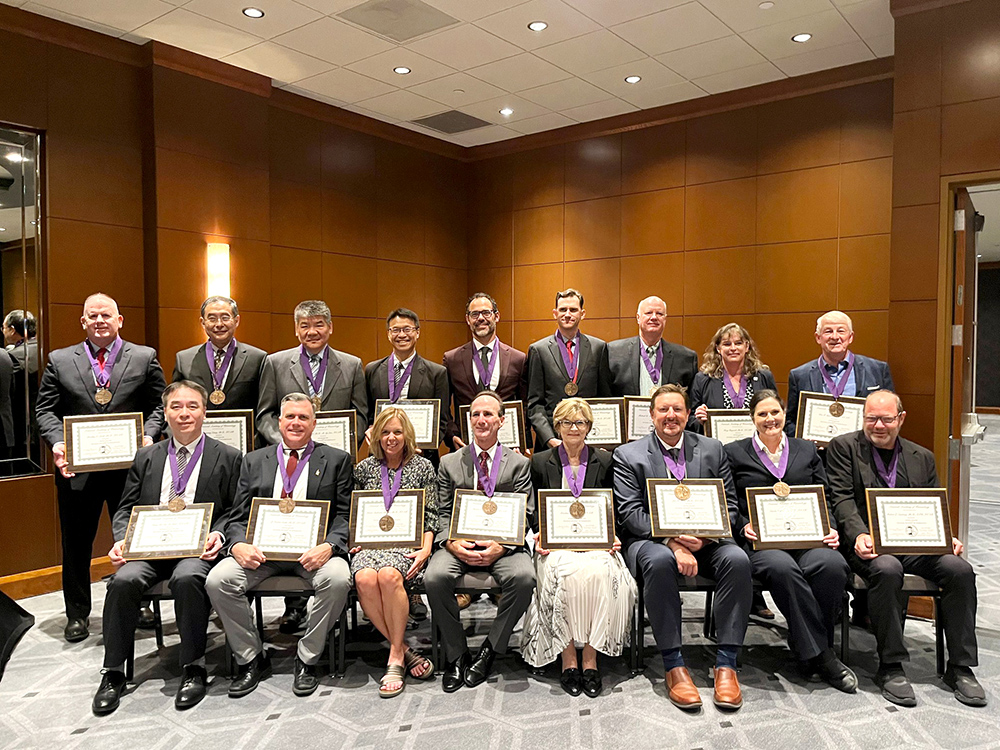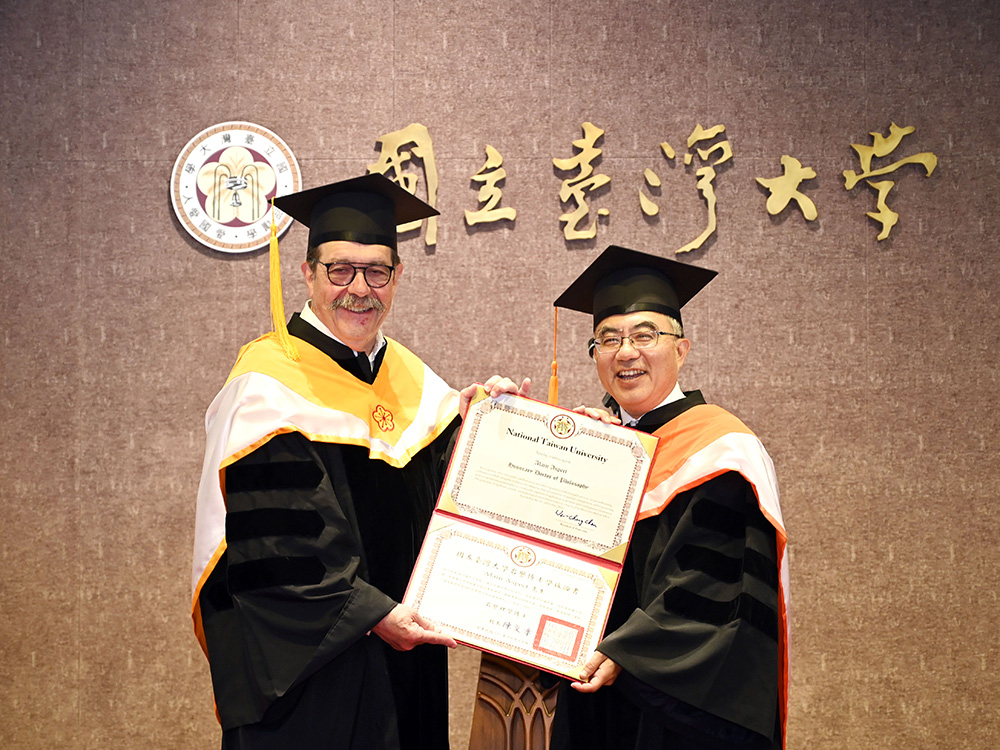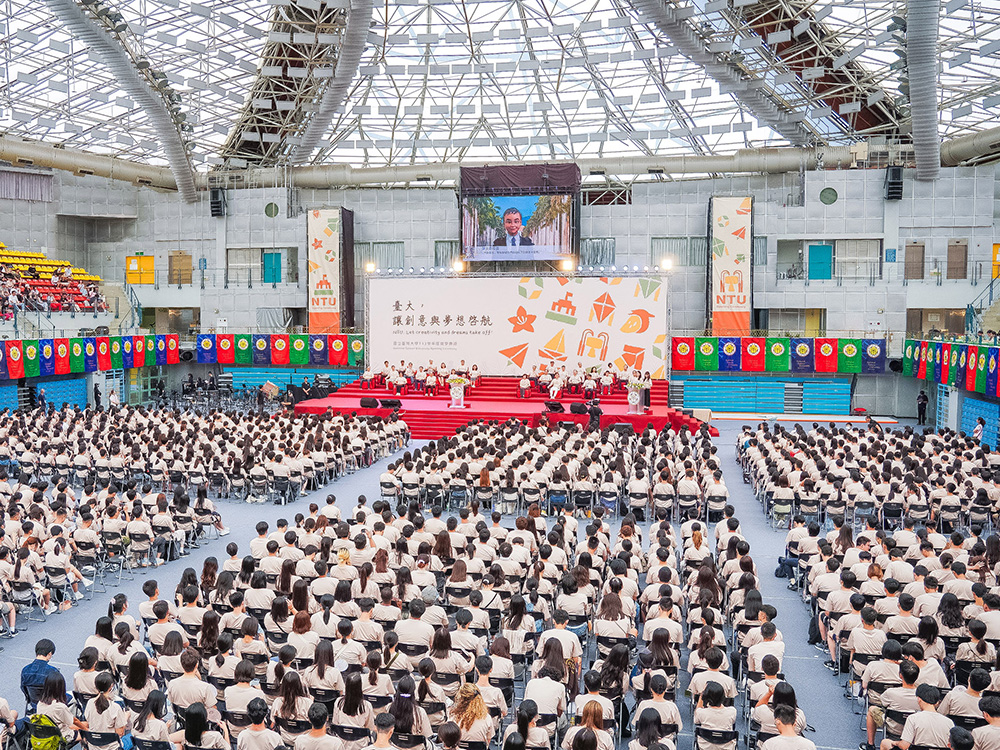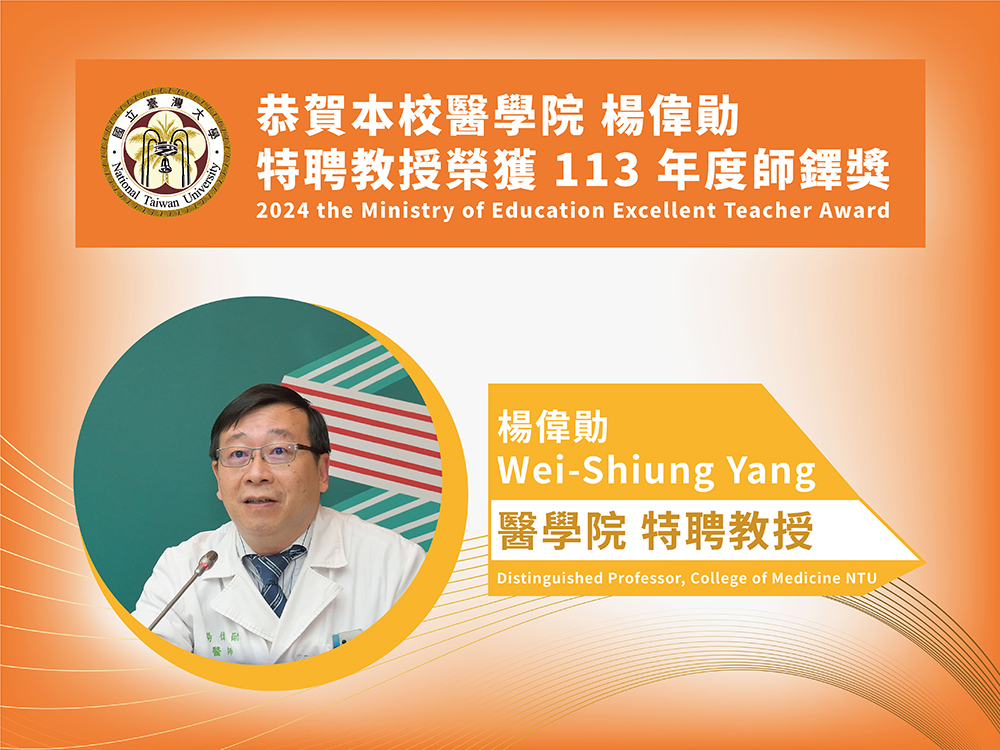
Prof. Tung-Wu Lu elected US National Academy of Kinesiology Fellow
瀏覽器版本過舊,或未開啟 javascript
請更新瀏覽器或啟用 javascript
Spotlights
NTU-TKU team’s study was published in Nature Communications. This figure illustrates the vectorization process of a typhoon track passing across Taiwan.
Typhoons often bring torrential rains, leading to tremendous floods in a matter of hours. With Taiwan’s steep terrain and short rivers, this rainwater could quickly fill up the reservoirs and cause enormous pressure and risks associated with flood discharge. The multinational research team led by NTU’s Department of Bioenvironmental Systems Engineering has now developed AI technology to predict flood patterns two days in advance based on projected typhoon tracking, significantly enhancing the timing accuracy of flood warning, as well as the effectiveness of reservoir flood control and integrated water resources management. This study was published in the internationally-renowned journal, Nature Communications.
Members of the research team included Prof. Fi-John Chang (張斐章) of NTU’s Department of Bioenvironmental Systems Engineering, Prof. Li-Chiu Chang (張麗秋) of Tamkang University (TKU)’s Department of Water Resources and Environmental Engineering, students Shun-Nien Yang (楊舜年) and Fong-He Tsai (蔡豐合), Director of the 5th River Management Office Ting-Hua Chang (張庭華), and Prof. Edwin E. Herricks of the University of Illinois at Urbana-Champaign.
This study was focused on the Shihmen Reservoir, which provides flood control and over 800 million cubic meters of annual water supply for households, agriculture, and industry in Northern Taiwan. However, the operation of the reservoir faces the dilemma of controlling storms and floods while maintaining a high water level to meet the use demands of households, agriculture, and industry. The research team collected hydrological and meteorological data of 97 typhoons during the past five decades, extracting complex high-dimensional data structures with AI technology for classification and forecasting.
After capturing the complex correlations among typhoon tracks, flood history, hydrological data, and geographical features with AI technology, the team developed a model that is capable of predicting flood patterns and total rainfall two days in advance. Using the projected typhoon track and total rainfall forecast data from the Central Weather Bureau, this model updates the flood forecast synchronously with the latest information as the typhoon progresses so as to enhance forecast accuracy and timeliness.
This research result can be used as an intelligent diagnostic tool for hydrology and meteorology to provide comprehensive and reliable information for reservoir operation. This model can also facilitate the establishment of a self-regulating mechanism for flood prevention and further ensure people’s safety and property.
This article is also featured in No. 78 of NTU Highlights (June 2020). To read the article in Nature Communications, visit https://doi.org/10.1038/s41467-020-15734-7.

Prof. Tung-Wu Lu elected US National Academy of Kinesiology Fellow

Nobel Laureate Alain Aspect awarded “NTU Honorary Doctorate” and “Raymond Soong Chair Professorship of Distinguished Research”

NTU Opening Ceremony: “Where Creativity and Dreams Take Flight”

Prof. Wei-Shiung Yang wins MOE National Excellent Teacher Award

NTU College of Public Health's Global Health Program Joins the Association of Schools of Public Health in the European Region
Current Spotlights

Prof. Tung-Wu Lu elected US National Academy of Kinesiology Fellow

Nobel Laureate Alain Aspect awarded “NTU Honorary Doctorate” and “Raymond Soong Chair Professorship of Distinguished Research”

NTU Opening Ceremony: “Where Creativity and Dreams Take Flight”

Prof. Wei-Shiung Yang wins MOE National Excellent Teacher Award

NTU College of Public Health's Global Health Program Joins the Association of Schools of Public Health in the European Region